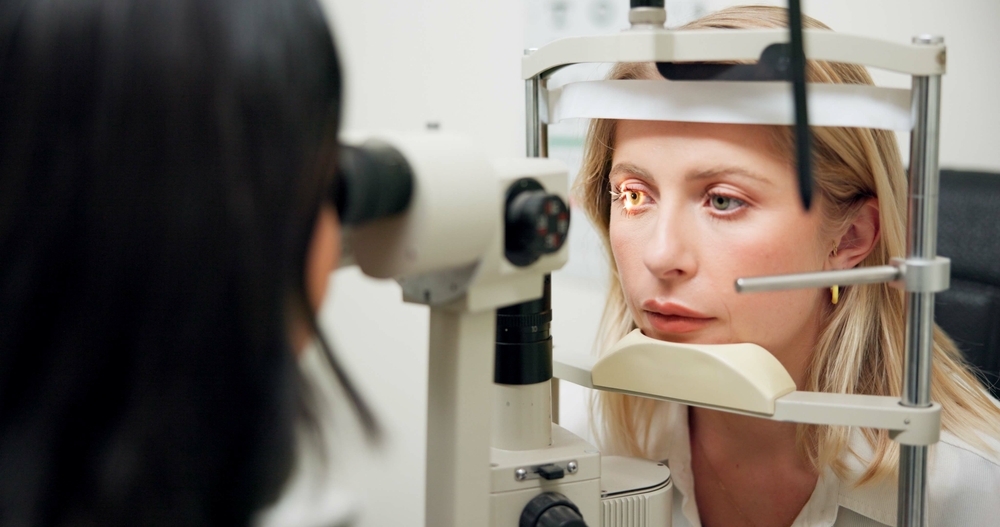What is the Difference Between a Medical Eye Exam and a Regular Eye Exam?
Blog:What is the Difference Between a Medical Eye Exam and a Regular Eye Exam?

What is the Difference Between a Medical Eye Exam and a Regular Eye Exam?
What is the Difference Between a Medical Eye Exam and a Regular Eye Exam?
Your eyes are one of your most precious assets, and maintaining their health should be a top priority. Regular eye exams are crucial for detecting and addressing vision problems, ensuring your eyes remain in optimal condition. Whether you need a routine check-up or a specialized medical evaluation, understanding the differences between a regular eye exam and a medical eye exam can help you make an informed decision about your eye care needs.
What is a Regular Eye Exam?
A regular eye exam is a comprehensive assessment of your visual system. During this exam, an optometrist will evaluate the overall health of your eyes, check for refractive errors (such as nearsightedness, farsightedness, or astigmatism), and assess your visual acuity. This type of exam typically includes the following:
• Refraction: This test determines the precise prescription needed to correct any refractive errors you may have.
• Eye Movement and Coordination: The optometrist will assess how well your eyes work together, ensuring they are properly aligned and able to focus on objects at various distances.
• Eye Health Evaluation: The optometrist will examine the internal and external structures of your eyes, looking for any signs of disease or abnormalities.
Regular eye exams are recommended annually or biennially, depending on your age, overall health, and any existing vision conditions.
What is a Medical Eye Exam?
A medical eye exam is a more specialized evaluation that focuses on the diagnosis and treatment of specific eye conditions or diseases. This type of exam is typically recommended when you are experiencing symptoms or have a known eye-related health concern. During a medical eye exam, the optometrist will:
• Comprehensive Health History: They will gather detailed information about your medical history, including any existing conditions, medications, and any vision-related symptoms you may be experiencing.
• Comprehensive Eye Evaluation: The optometrist will conduct a thorough examination of your eyes, using specialized instruments and techniques to assess the health and function of your visual system.
• Diagnostic Testing: Depending on your symptoms and the suspected condition, the eye care professional may perform additional tests, such as imaging scans, to obtain a more accurate diagnosis.
• Treatment and Management: Based on the findings of the medical eye exam, the optometrist will develop a personalized treatment plan to address any identified eye health issues.
Medical eye exams are often necessary for individuals with chronic eye conditions, those experiencing sudden changes in vision, or those at risk of developing certain eye diseases, such as glaucoma or macular degeneration.
The Difference Between a Regular Eye Exam and a Medical Eye Exam
A regular eye exam is a routine checkup aimed primarily at assessing vision clarity and determining the need for corrective eyewear, such as glasses or contact lenses. The overall eye health is also checked, but the main focus is ensuring you see clearly and your prescription is up-to-date.
In contrast, a medical eye exam is focused on diagnosing and managing eye diseases or other medical issues affecting eye health. A medical eye exam may involve more comprehensive diagnostic testing, such as dilating the pupils to closely examine the retina and optic nerve, using imaging technology to get a detailed look at the eye’s internal structures, or conducting tests to measure eye pressure.
Overall, a regular eye exam primarily addresses vision correction, while a medical eye exam is dedicated to identifying, monitoring, or treating more complex medical conditions that impact your eye health. Both exams are essential for maintaining good vision and eye health, but they serve different roles depending on your needs.
Texas State Optical: Your Go-To Destination for All Your Eye Care Needs
By understanding the differences between a regular eye exam and a medical eye exam, you can make an informed decision about the type of eye care you need to maintain your vision and overall eye health. Regular check-ups and prompt attention to any vision-related concerns can help you preserve your sight and enjoy a lifetime of clear, comfortable vision.
At Texas State Optical, we understand the importance of maintaining the health and well-being of your eyes. Whether you need a regular eye exam or a medical exam, we are dedicated to providing you with the highest quality of care.
Contact Texas State Optical to schedule your regular eye exam or medical eye exam and take the first step towards ensuring your optimal vision and eye health. Visit our office in Austin, Texas, or call (512) 452-5735 to book an appointment today.


